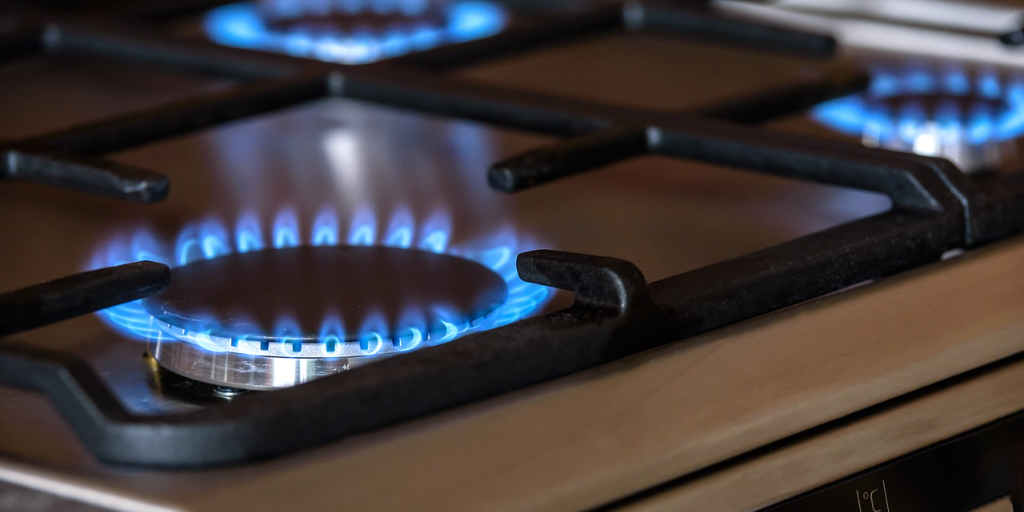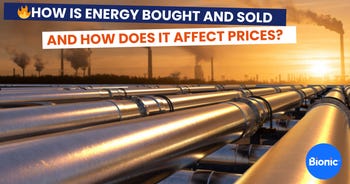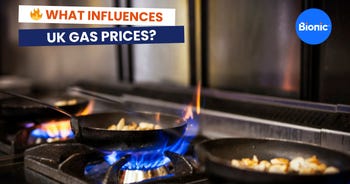What is the Gas Safe Register, and why is it important?
Working with gas can be dangerous. Getting it wrong can have disastrous consequences.
For that reason, strict regulations ensure that everyone working with gas is doing so safely. It’s required by law that all gas businesses must be on the Gas Safe Register, which is the official body of gas engineers and companies in the UK.
In business, any downtime costs money, which means it's crucial to use the right people to install and maintain any gas appliances you may use.
This guide explains what you need to know about the Gas Safe Register and why it’s so important.

Five-point summary
- Only Gas Safe registered engineers are legally allowed to carry out gas work in the UK. Using someone unregistered is not only illegal, it can also put lives at risk through gas leaks, fires, or carbon monoxide poisoning.
- The Gas Safe Register is the official list of qualified gas engineers and businesses. It replaced CORGI in 2009 and ensures all registered engineers have the right training and are regularly checked for safety and competence.
- Businesses that work with gas need to renew their registration each year and follow strict safety rules. That includes using qualified engineers, keeping proper records, and only doing the type of gas work they’re registered for.
- Commercial property owners have legal duties too. If you supply gas appliances to tenants, you're responsible for keeping them safe, arranging annual safety checks, and using Gas Safe engineers for any work.
- Checking an engineer or business is easy – and essential. You can look them up online or ask to see their Gas Safe ID card. Don’t assume someone you’ve used before is still registered – always double-check before any gas work starts.
What is the Gas Safe Register?
The Gas Safe Register is a list of businesses and individuals that are legally permitted to work with gas and related appliances.
Before 2009, all gas installers had to be Council for Registered Gas Installers (CORGI) registered by law. The Gas Safe Register replaced CORGI in 2009, taking its place as the official gas registration body in the UK.
Each engineer must complete training and assessments to demonstrate competencies in gas safety before they can commence working with gas. If they pass, they’re added to the register.
What does the Gas Safe Register do?
The Gas Safe Register operates the only official list of gas businesses, engineers and installers in the UK. Those on the list are then licensed to carry out gas works legally and safely. It has to be renewed every 12 months to keep the level of competencies up to date.
The Gas Safe Register will carry out competency inspections and investigate any complaints against anyone on the register. If it finds breaches in registration, it can revoke the license and remove the offending party from the register. It also has the power to report anyone using unsafe practices to the Health and Safety Executive, which can lead to prosecution.
Not only do they operate to ensure compliance by the installers on the register, but the Gas Safety Register’s remit also authorises it to investigate any reports of work carried out by unlicensed engineers.
The Gas Safety Register is also responsible for running public-facing campaigns aimed to raise awareness of the dangers of gas and carbon monoxide.
Who should be on the Gas Safe Register?
Anyone carrying out gas works should be on the Gas Safe Register. Engineers that aren’t on the register are putting the lives of their customers at risk, plus they’re risking hefty fines and prosecution.
Appliances that are not correctly installed and maintained by a registered gas engineer can lead to severe problems, invalidated warranties and insurances, and even death. Dangerous gas and carbon monoxide leaks can have catastrophic consequences, which is why it is so vital that it’s regulated to avoid any issues.
Work done by illegal fitters costs the British public millions each year to rectify. One-fifth of homes were found to be “Immediately Dangerous” by the Gas Safe Register; they disconnected appliances until they were made safe by a qualified engineer.
What does a business need to do to maintain Gas Safe registration?
If you're running a business that works with gas appliances, staying on top of your Gas Safe registration isn't just a legal must – it's how you show customers you're serious about safety and standards. Here’s what you need to do to keep your registration ticking over.
- Renew your registration every year - Gas Safe registration needs to be renewed annually. That means filling out the paperwork and paying the renewal fee every 12 months. It's not automatic, so make sure you keep an eye on the date to avoid any lapse in cover.
- Make sure you’ve got a registered engineer on the books - To stay registered, your business must have at least one Gas Safe registered engineer. That engineer needs to have the right qualifications – like up-to-date ACS certificates – and only carry out work they’re qualified to do.
- Stick to gas safety laws and work within your scope - Your business can only do gas work that falls within your registered scope. You’ll also need to stick to the Gas Safety (Installation and Use) Regulations. That includes making sure all work is safe, properly recorded, and legally compliant.
- Keep standards high and expect inspections - You’re responsible for the quality of all the gas work your business carries out. Gas Safe may inspect your work, so it’s important everything meets industry standards and is completed safely. That includes following the rules, using the right parts, and recording the job properly.
- Use the Gas Safe logo the right way - If you're using the Gas Safe Register logo on your vans, website, or marketing, make sure you're following their guidelines. Misuse can lead to warnings or even losing your registration – and that's not good for business.
- Keep your details up to date - If anything changes in your business – your name, address, structure, or engineers – you’ll need to let Gas Safe know. That includes when engineers join or leave your business or when their qualifications change.
- Keep records of your gas work - You should have proper records of the gas work your business carries out, including safety checks, service certificates, and any reports. These need to be available if Gas Safe asks to see them.
Keeping your registration up to date is all about running a safe, compliant business – and showing your customers they’re in expert hands. If you're not sure what cover you need to protect your business too, the team at Bionic can help you compare business insurance and find the right fit.
How to check if a business is currently registered
It’s easy to check if an engineer or business is listed on the Gas Safe Register. Head over to the Gas SafeRegister website and use their handy checking service to search for the company.
If you don’t have access to the internet when your engineer arrives, ask to see their Gas Safe ID card. Don’t forget to check if the work they are carrying out is listed on their card before you let them do the job.
You can also email or call the Gas Safe Register to find Gas Safe businesses.
How to check if an individual engineer is registered
To check whether an individual engineer is registered is simple; just enter their details on the Gas Safe Register’s Find An Engineer page.
You can even check what qualifications they have, when they got them and when they expire. Each ID card is renewed annually with a different number, so don’t assume someone you used in the past will still be registered in the future. Always check their credentials to be safe each time you employ someone.
Is Gas Safe registration a legal requirement?
Only Gas Safe qualified engineers are licensed to legally work with gas and gas appliances.
How long does a Gas Safe qualification last?
Gas Safe qualifications last for 12 months. All engineers must update their registration every year to allow them to legally work with gas. Always check the details on your engineer's identity card.
What to do if a business or engineer is operating illegally
If you believe a company or engineer is working on gas illegally, you can report them to the Gas Safe Register via their website.
Rogue installers can invalidate your appliance warranties and your property insurance. They’ll also leave you with a dangerous appliance that could harm you or your staff.
How to find a Gas Safe engineer
The simplest way to find a Gas Safe engineer is to search for one using your postcode on the Gas Safe Register website. This ‘Find by Location’ tool will then show you a list of Gas Safe registered engineers in your area along with their contact details. You can also select whether you are looking for an engineer for domestic or commercial purposes.
What are the risks of using unregistered gas engineers?
If you're hiring someone to work on gas appliances in your home or business, they must be Gas Safe registered. If they’re not, you’re taking a serious risk – one that could cost lives, money, and peace of mind.
- You could be putting lives in danger - Unregistered engineers haven’t been checked or tested to prove they’re competent. That means they could easily make mistakes that lead to:
- Gas leaks
- Fires or explosions
- Carbon monoxide poisoning – which can be fatal and is hard to detect
Gas Safe registered engineers are trained to spot risks, follow safety rules, and do the job right. Using someone who isn’t qualified could put your family, customers, or staff in danger.
- It’s against the law - It’s illegal for anyone to carry out gas work in the UK unless they’re on the Gas Safe Register. If you knowingly hire someone who isn’t registered, you could be breaking the law too – and that means fines, legal action, or worse.
- Your insurance might not cover you - If something goes wrong and you’ve used an unregistered engineer, your business insurance provider might refuse to pay out. That means you could be left footing the bill for repairs, damage, or even legal costs.
- It could cost you more in the long run - Bad gas work is expensive to put right. If an unqualified engineer botches the job, you’ll need to bring in a registered expert to fix it properly – and that’s double the time and double the cost. You might also lose income if it affects your business operations.
- You won’t get the peace of mind you need - Gas Safe engineers carry ID cards, are fully insured, and are regularly checked to make sure they’re doing safe, legal work. Without that, you’re left guessing – and hoping for the best. That’s not good enough when gas is involved.
Always ask to see your engineer’s Gas Safe ID card, and check their credentials online if you’re unsure. It’s a quick, simple step – but it could save lives.
What are Building Regulations?
Building Regulations (or “Building Regs”, as you may hear them called) are standards that ensure buildings are safe. They’re used in every aspect of a build.
Installers must inform the local authority to check the build or allow tradespeople to self-certify at each stage to ensure it meets the requirements of current regulations.
Building Regulations make sure your gas appliances are installed correctly. They cover things like flue position, the number of joints in a flue, or the position of an appliance.
How to get a Building Regulations Certificate
Your local authority will issue a Building Regulations Compliance Certificate once they have received the self-certification from your engineer. You should keep it safe in case you want to move or remortgage in the future, as you’ll need to prove this is in place as part of your mortgage requirements.
If you’re a landlord, you’re legally obliged to have gas safety checks carried out by a qualified engineer who appears on the Gas Safe Register. Certification is required to be in place by law.
What commercial property owners need to know about Gas Safe rules
If you own a commercial property with gas appliances, you’ve got legal responsibilities under Gas Safe regulations. Whether your building is rented out to a takeaway, office, or workshop, it’s your job to make sure any gas systems are safe and properly maintained.
- You’ll need to keep appliances safe and in working order - If you supply any gas appliances as part of the lease, like a boiler, oven or heater, it’s your responsibility to make sure they’re safely installed and kept in good working order. That means regular checks, quick repairs when something goes wrong, and making sure your tenants are using them safely.
- You must arrange a gas safety check every year - By law, any gas appliance you provide must be checked once a year by a qualified Gas Safe registered engineer. Once they’ve done the inspection, they’ll give you a Gas Safety Record (also called a CP12). You need to:
- Keep the certificate for at least two years
- Give a copy to the tenant within 28 days of the check
- It’s a simple step that shows you’re taking safety seriously — and staying compliant.
- Always use a Gas Safe registered engineer - Any gas work at your property, whether it’s an installation, service or repair, must be done by a Gas Safe registered engineer. And if you’ve got commercial-grade equipment, make sure they’re qualified for non-domestic work. Not all engineers are.
- Deal with any unsafe appliances straight away - If an appliance is found to be unsafe, it needs to be turned off and fixed immediately. Gas leaks or carbon monoxide risks are serious business, and ignoring them can put people’s lives in danger.
- Check what the lease says about responsibilities - In some cases, your lease agreement might pass maintenance responsibilities to the tenant. But as the property owner, it’s still worth checking in to make sure everything’s being looked after properly. After all, it’s your name on the deeds — and you could still be liable if something goes wrong.
Staying Gas Safe compliant isn’t just about ticking a legal box. It’s about protecting your tenants, your property, and your peace of mind.
Get safe business gas today
For any gas works or installations of gas appliances, ensure your engineer is on the Gas Safe Register — both for your benefit and that of your business.
If you’re looking for more information on Gas Safe or to compare your business gas prices, or business electricity, contact the Bionic energy experts today.








